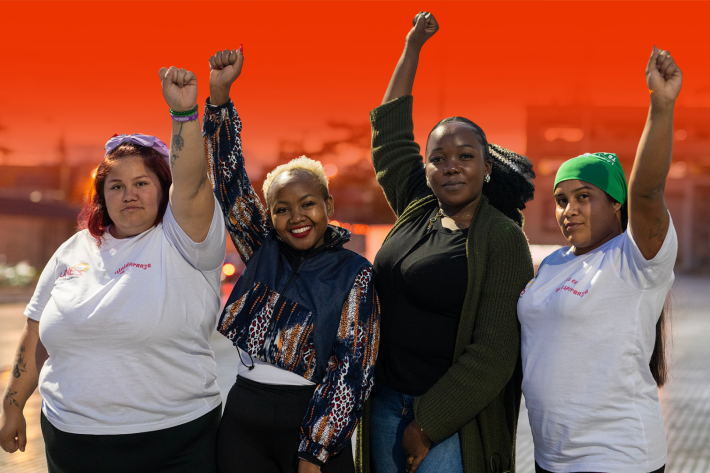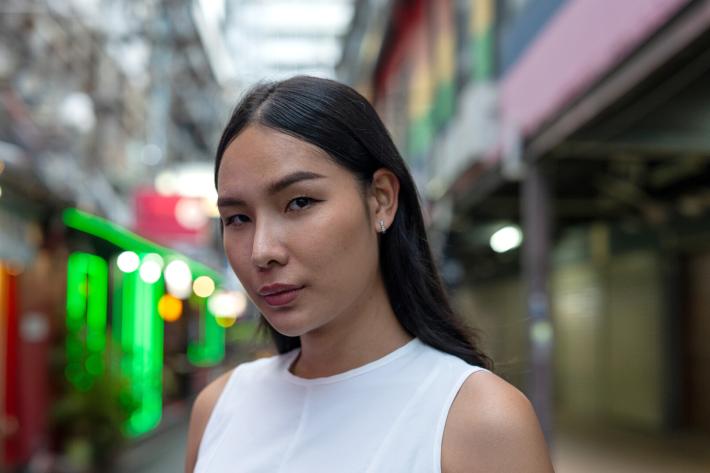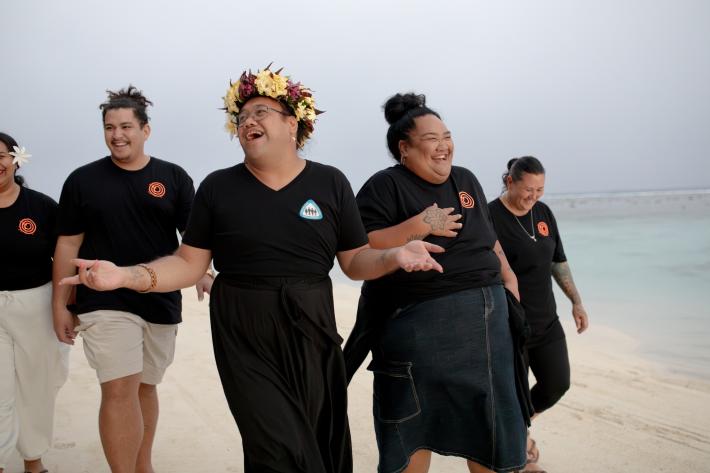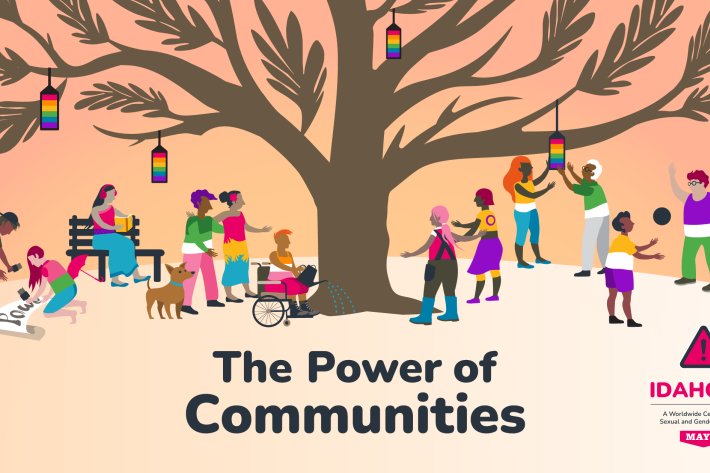
Spotlight
A selection of news from across the Federation
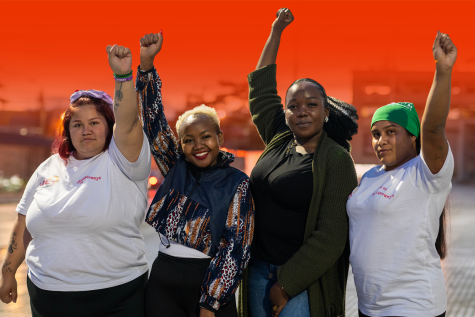
We Made It a Charter: IPPF’s Declaration of Values
Proud, bold, and united: we are values-led.
Filter our news by:


| 16 December 2016
Plea for Aleppo
My Name is Dr Lama Mouakea. I am the Executive Director for the Syrian Family Planning Association. We are now in the fifth year since the start of unrest in Syria, the situation continues to worsen. With half million people being killed and more than ten million having fled their homes, the conflict has now escalated, violently affecting the people in Aleppo, Syria’s largest city. We still are in Aleppo. The situation is difficult. We are struggling to survive. People are coming here because they are not safe. Thousands have left East Aleppo in fear. It is cold. People walk long distances. There is so much crowding and for my staff the hours are very long. There are too many people. Everywhere is crowded and this limits where we can find spaces to provide our services. The security situation in the city means that we are trying to deliver services and see as many people as we can. We know that who we treat today we may not see again. We are providing the highest number of services from mobile clinics, to contraceptive supplies, to essential medicines including vitamins. We have medical teams and volunteers providing sexual and reproductive health services, psychosocial and paediatric through a range of mobile clinics and mobile teams so we can reach people. The risks for women and girls from sexual violence is high. We have seen many cases in our psychosocial support of violence that this kind of displacement exposes them to. We provide tailored support to the survivors of sexual violence, which has increased enormously during the war. There isn't enough services for the people. The demand is high and we need more assistance. With such high numbers and suffering, our internally displaced need urgent help. My staff are also suffering. We cannot keep up and want to survive. We won't leave because our place is here to help our people. I can only hope that the world can hear me. Please consider the Syrian people and what we are going through. We need money to give hope to people and help them survive and save lives. Support IPPF's work in Aleppo DR LAMA MOUAKEA | Executive Director, the Syrian Family Planning Association Mrs. Lama Mouakea has been the Executive Director of the Syrian Family Planning Association (SFPA) for the last 19 years and has a long history of working with sexual and reproductive health services. Currently she is responsible for supervision of 114 staff and coordination of 600 volunteers. Under her leadership the SFPA has played a major role in responding to the emergency situation in Syria, providing sexual and reproductive health services to people who are internally displaced due to the on-going conflict, with a focus on mother and child care and nutrition, psychosocial support, first aid and training of health personnel in the provision of clinical management for rape survivors and coverage of the minimum initial service package among a lot of other things.

| 28 November 2016
IPPF joins Durex on World AIDS Day to detail the risks of unprotected sex
“Open Umbrella with Raindrops” emoji revealed as the people’s choice following a global poll* in response to Unicode’s refusal to create an official Condom Emoji. To mark World AIDS Day Durex calls for people to use and share the “Umbrella with Raindrops” emoji to help raise awareness of the risks associated with unprotected sex More than 75% of 16-35 year olds surveyed1 use emojis to discuss sex, with 9 out of 10 claiming that a safe sex emoji would help them to talk more openly about safe sex Almost 50% of 16-35 year olds think that HIV is not something that could ever affect them** despite the fact that every 30 seconds a young person is infected with the virus*** As part of Durex’s ongoing #CondomEmoji campaign, the World’s leading sexual wellbeing brand has today announced “Umbrella with Raindrops” as the overwhelmingly preferred choice in a global poll* to name the unofficial safe sex emoji. To mark World AIDS Day on December 1st, Durex is calling for people across the globe to use and share the emoji in order to raise awareness of the risks associated with unprotected sex and to demonstrate to Unicode the need for an official #CondomEmoji to be approved and appear on every smartphone. The campaign was launched following the shocking revelation that almost half of 16-35 year olds surveyed felt that HIV is not something that could ever affect them despite the reality that every 30 seconds a young person is infected with HIV***. More than 60% of young people surveyed* admitted to being uncomfortable discussing safe sex, with 72% of respondants admitting they found it easier to express emotions using emojis and more than three quarters admitted that they used emojis to discuss sex and relationships. When questioned 9 out of 10 agreed that an official #CondomEmoji would be something that would help them to talk more openly about safe sex. Durex Global Category Director, Volker Sydow, said: “At Durex we believe that for this World AIDS Day identifying the unofficial safe sex emoji is an important step that helps to empower young people to put safe sex back on the agenda, supporting the fight to reduce the spread of HIV and AIDS. We are asking people to show their support for the cause by using this unofficial safe sex emoji and sharing the hashtag #CondomEmoji.” The campaign has also received the support of the International Planned Parenthood Association (IPPF), with Director General Tewodros Melesse adding: “Safe sex awareness continues to be an important global challenge. We support Durex’s campaign in helping make young people think about protection. On World AIDS Day we will be backing this effort to help raise awarness of the risks associated with unprotected sex.” Durex have created an online video as part of the campaign: Sources: * 3GEM research questioning 3500 people from UK, USA, Brazil, China, India and South Africa commissioned by Durex – UK, October 2016 ** Someone Like Me, VIMN & Brand Solutions Insight with Tapestry Research, 2014 *** UNAIDS. Global Report 2010, Core Slides, Slide 11 About Durex Durex® is the #1 sexual wellbeing brand worldwide, producing a wide range of products, including high quality condoms, intimate lubricants and personal massagers. With over 80 years of experience in the bedroom, Durex is dedicated to inspiring lovers to love sex safely. That is why Durex will never stop innovating with new products that enhance the sexual experience, helping couples get closer and go further together. For more information, go to www.Durex.com. About RB* RB* is the world’s leading consumer health and hygiene company. The company has operations in over 60 countries, with headquarters in London, Dubai and Amsterdam, and sales in most countries across the globe. The company employs approximately c. 37,000 people worldwide. Inspired by a purpose to deliver innovative solutions for healthier lives and happier homes, RB is in the top 20 companies listed on the London Stock Exchange. We are the global No 1or No 2 in the majority of our fast-growing categories, driven by an exceptional focus on innovation. Our health, hygiene and home portfolio is led by our global Powerbrands including Nurofen, Strepsils Gaviscon, Mucinex, Durex, Scholl, Clearasil, Lysol, Dettol, Veet, Harpic, Cillit Bang, Mortein, Finish, Vanish, Calgon, Air Wick, Woolite and French’s. Our Powerbrands represent 80% of net revenue. RB is redefining the world of consumer health and hygiene. Our people and unique culture are at the heart of our success. We have a drive for achievement and a passion to outperform wherever we focus, including sustainability where we are targeting a 1/3 reduction in water impact, 1/3 reduction in carbon and 1/3 of net revenue from more sustainable products. We are proud to be Save the Children’s largest global partner, with a new vision to radically reduce one the world’s largest killer of under 5s, diarrhoea. For more information visit www.rb.com. *RB is the trading name of Reckitt Benckiser group of companies
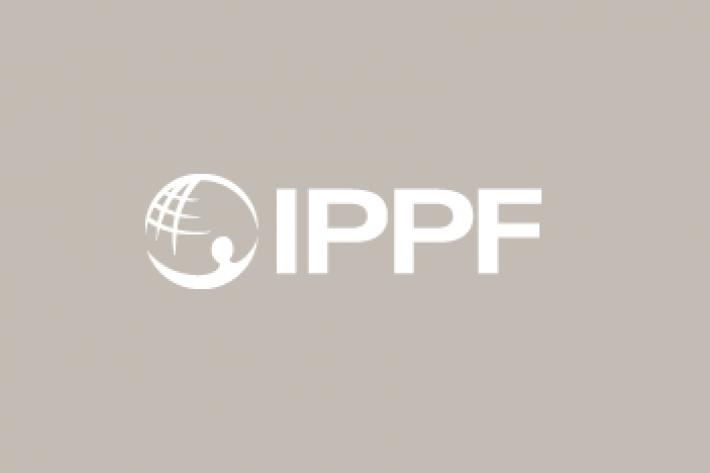
| 09 November 2016
Director General responds to Trump victory US presidential election
Tewodros Melesse, IPPF Director General, has responded to the victory of Donald Trump in the US presidential election. Mr Melesse said: “IPPF fights for the rights of women and girls, everywhere. As a Federation we will stand together and raise our voices even louder. We support our friends at Planned Parenthood in their determination to offer health care to millions of American women and ensure that access to abortion remains safe and legal. “The US is a global leader on family planning and the biggest donor in the world, through the work of USAID. That is a proud record, stretching back 55 years. Any dollar cut from US international family planning and reproductive health programs affects the lives of some of the poorest women and children around the world.” “IPPF calls on President-elect Donald Trump to respect the fight for women’s rights and reproductive health and rights, nationally and globally.” “At one point in the campaign, President-elect Trump said that no-one had more respect for women than him. We very much hope that he will honor that by upholding a woman's right to safe and legal abortion and through his support for America’s international programs which aim to give millions of women around the world a better life.”
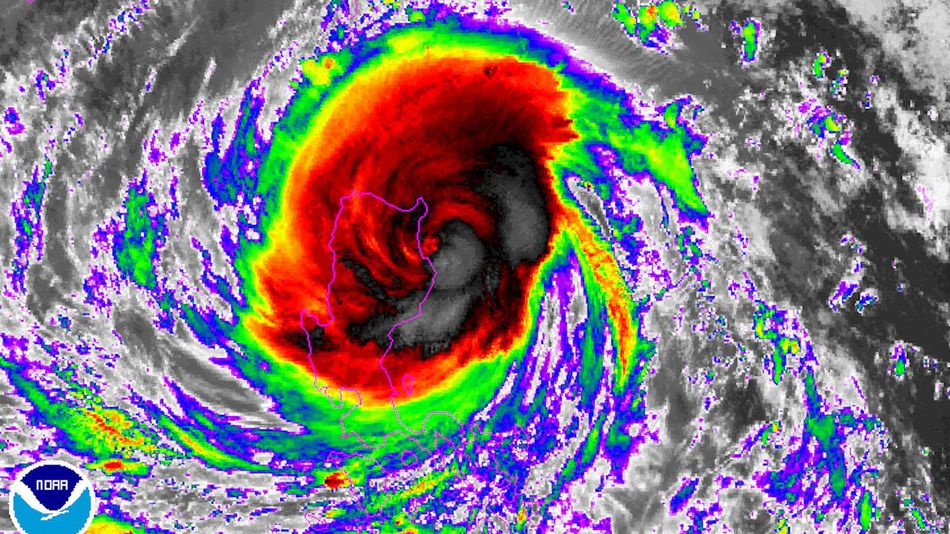
| 20 October 2016
Urgent appeal: Typhoon Haima strikes the Philippines
Another dangerous tropical cyclone has emerged in the Pacific Ocean. The Typhoon Haima hit the northern part of the Philippines and considering the strength of the storm this cyclone will have had a high humanitarian impact. Please make a donation now. As of reporting time, a total of 18,157 families (90,589 individuals) were evacuated. Initial reports from the Cordillera Region show that 113 houses were damaged. With the strength and extent of the destruction, it is most likely that health and birthing facilities and schools were severely affected. In the rush to provide shelter and food in a crisis, the health and protection needs of pregnant women and young families are often overlooked. When the Typhoon struck approximately one in five women will have been pregnant. Without access to the right health care, we expect 20 per cent of them will incur complications during the delivery. Your donation will help us save lives. Having established partnerships in 170 countries, IPPF is one of the first responders when a crisis occurs. Helping the hardest-to-reach areas, particularly women and girls, we are often the only health providers there. The International Planned Parenthood Federation, working through the Family Planning Organization of the Philippines (FPOP), is responding to this crisis. We have worked together since 1969 and in recent years we have saved countless lives following Typhoon Haikui, Bopha, Trami and Haiyan. FPOP is working closely with the local government and international relief agencies to ensure that no women or her family is left behind and put at risk during this crisis. Nandy Senoc, FPOP’s Executive Director said “While we don’t yet know the full extent to the devastation, we are mobilizing our health workers and volunteers, to provide lifesaving services. As a volunteer organization, we are there before, during and after the crisis strikes. We are ready to respond now. For many women and girls in these affected areas, access to our essential health and protection services could mean the difference between life and death. I would like to thank you for supporting IPPF’s work and for standing by women and girls during difficult times like this. Your generosity today will help us support more women and girls as this crisis unfolds." With your support we reach over 2.2 million clients in crisis settings annually in all corners of the world.
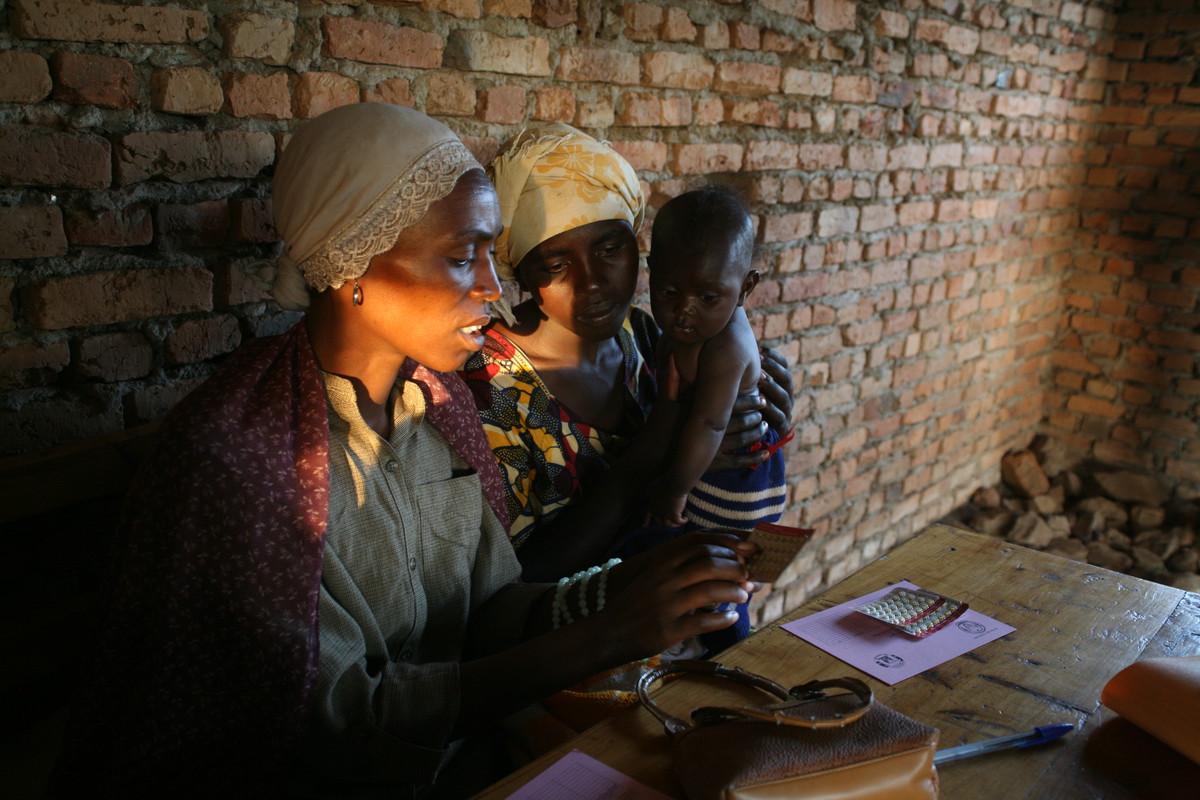
| 20 September 2016
Campaign to tackle global contraceptive crisis
A petition has been launched calling for the United Nations Secretary General Ban Ki-Moon to tackle a looming global contraceptive crisis which threatens to put the health and well-being of thousands of women at risk. The International Planned Parenthood Federation (IPPF), in collaboration with the Reproductive Health Services Coalition (RHSC), PAI and Marie Stopes International (MSI), has launched a digital advertising campaign in the online version of Guardian Newspaper today calling for urgent action to be taken. .@Bankimoon_amdg tell world leaders to keep their promises to women. https://t.co/nhY2Iu8pUs #FPCrisis #WCD2016 pic.twitter.com/BXQOK1PaAg — PAI (@pai_org) September 19, 2016 The availability of contraceptives relies largely on funding from donor countries. As donors are falling short on their promises, it is leading to a crisis in getting contraceptives into the countries that need them most. UNFPA is the only agency equipped to provide sexual and reproductive health care to women and girls in conflicts and emergencies and UNFPA Supplies provides approximately 40% of donated commodities to low and middle income countries. Indications show that there is a funding gap of around $273 billion between now and 2020. Projections show that by 2020, 397 million women will be using modern methods of contraception throughout more than 130 developing countries. If the funding gap is not closed, the needs of these women will not be met. At the same time, most developing country governments have not made sufficient investments in contraceptives to fill the gap and meet the needs of women. Access to contraception is transformative for women and communities. It is linked to greater gender equality, educational attainment and even economic development. Every $1 invested in sexual and reproductive health and unmet need for family planning has the potential to save $120 in other areas. The Sustainable Development Goals (SDGs) cannot be achieved without sustained investment in reproductive health supplies, as a reduction in unintended pregnancy is critical to health, wealth and wellbeing. And, a failure to meet the contraceptive needs of women has the potential to derail progress already made. The petition calls for the Ban Ki-Moon to highlight the centrality of contraceptives to achieving the sustainable development goals. It calls for global leaders and donors must prioritise funding for contraceptives and the systems that deliver them on the global agenda. Please sign the petition. The home page for the campaign is here.
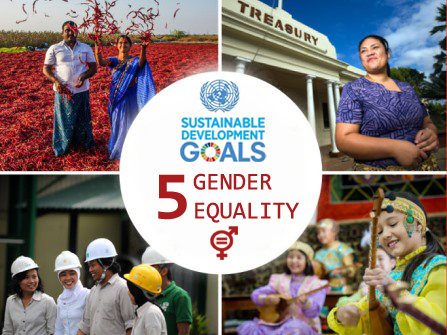
| 15 August 2016
IPPF joins forces to call for gender equality
The International Planned Parenthood Federation (IPPF) has joined forces with Keira Knightley, Annie Lennox and a string of other celebrities and humanitarian organisations to call on the new International Development Secretary to lead the global fight for gender equality. About 40 individuals and charities have written to Priti Patel urging her to show strong leadership, adding that progress towards achieving women’s rights is too slow and under-funded. . The letter says it’s now time ‘to tackle the unacceptable discrimination and injustices women and girls continue to face on a daily basis’. Today @marthalanefox, @lovegwendoline + 38 more ask @patel4witham to invest in #fearless grassroots women’s groups: https://t.co/yDMWmL4YDd — ActionAid UK (@ActionAidUK) 12 August 2016 The issues facing women and girls, it says, range from the gender pay gap to online abuse, sexual violence in conflict, and girls’ lack of access to education - gender inequality continues to be a major barrier and affects women and girls everywhere. Statistics show that one in three women will face violence in their lifetime, nearly two thirds of the world’s illiterate adults are women, and that fewer than four per cent of the world’s leading corporations have female CEOs. We stand with other #womensrights supporters in this letter to @patel4witham https://t.co/7h2RNNl793 #fearless pic.twitter.com/UHlXyih0Qm — Womankind Worldwide (@woman_kind) 12 August 2016 Despite the problems facing women and girls it is an area that misses out on investment. An independent report found recently that funding women's rights organisations is a "neglected" area in Dfid (the Department for International Development) spending. The letter says: “While there is no quick fix for achieving gender equality, we know that challenging social norms and prioritising women’s voice and leadership are vital. There is also broad consensus that one of the linchpins of realising long-term, transformative change for women and girls is a strong, vibrant and sustainable women’s rights movement, which remains chronically under-funded.” The letter calls for Ms Patel to invest further in grassroots organisations that support women around the world. It says: “Across the world, women’s rights organisations are at the forefront of providing services to survivors of gender-based violence; ensuring women and girls’ participation at every level; holding their national governments to account for their policies and practices. Without them it will not be possible to keep the promises of the SDGs (Sustainable Development Goals).” In July Ms Patel publicly committed to keeping the Government's promises to the world’s poor, which was included in the 2015 poverty reduction targets (the SDGs). The signatories of the letter include ActionAid UK, Annie Lennox, Anoushka Shankar,Barbara Broccoli, Care International UK, Caroline Criado-Perez, Christian Aid, Emma Thompson, Felicity Jones, FORWARD, Gwendoline Christie, Imelda Staunton, International Rescue Committee (IRC), Jane Wellesley, Jodie Whittaker, Keira Knightley, Laura Marling, Leith Clark, Livia Firth, Martha Lane Fox, Maryam D’Abo, Naomie Harris, National Alliance of Women’s Organisations (NAWO), Oxfam GB, Paloma Faith, Plan International UK, Progressio, Sarah Waters, Shami Chakrabarti, Stars Foundation, Sophie Walker, Thandie Newton, The Circle, Vanessa Redgrave, WEN Wales, White Ribbon Alliance, Widows for Peace through Democracy (WPD), Womankind Worldwide and Women’s Equality Party. A story about the letter was published in the Daily Telegraph which can be read here: www.telegraph.co.uk/news/2016/08/12/keira-knightley-and-vanessa-redgrave-call-on-priti-patel-to-lead/
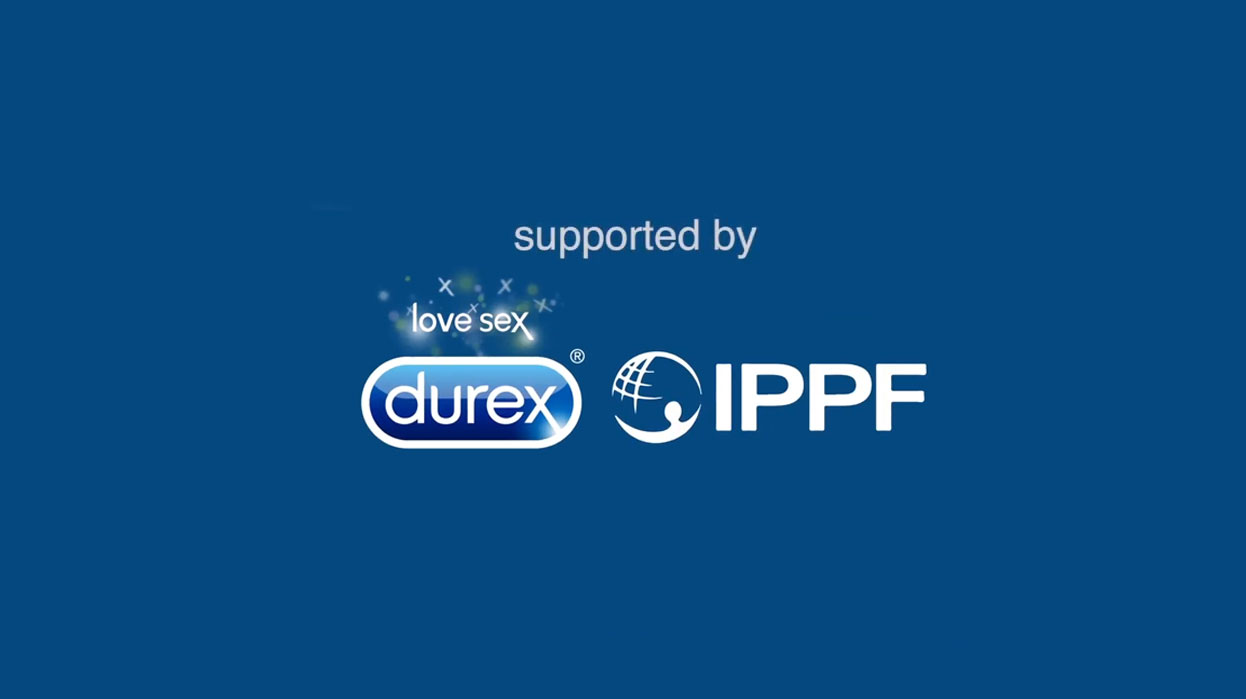
| 05 August 2016
IPPF and Durex join forces to raise awareness of Zika as an STI
Global #DontShareZika campaign launched to spread the message with an educational video and condom giveaway. As the global focus shifts to Brazil, the world’s leading sexual wellbeing brand Durex and the International Planned Parenthood Federation (IPPF) have joined forces to launch #DontShareZika, a global campaign to raise awareness of the Zika virus, educate about its status as a sexually transmitted infection (STI) and provide direct support by handing out millions of free condoms. We're working with @ippf to help stop the spread of #Zika. Want to help? Share this, but #DontShareZika… pic.twitter.com/hdhx51sEi2 — Durex Global (@durex) August 5, 2016 The move follows the update by the World Health Organization (WHO), confirming that in addition to being spread by infected mosquitoes, Zika* can also be transmitted sexually. This means that everyone - including people in a monogamous relationship - may be at risk from the STI if they, or their partner, have visited an affected area and been bitten by an infected mosquito. As an STI, the Zika virus has the potential to travel and spread between people who may not even realise they are infected. In response, Durex have created the #DontShareZika video to educate that the Zika virus can be passed between couples during unprotected sex, and committed to a giveaway of three million free condoms in Brazil. WHO recommends that men and women returning from an area where Zika is circulating should practice safer sex, including through the correct and consistent use of condoms, for at least eight weeks after leaving an affected area, even if they don’t have symptoms. At a time when Brazil is expecting as many as a million extra visitors from across the globe, the #DontShareZika campaign aims to spread this important message as widely as possible to limit the risk of further infections. #DontShareZika follows recent work by Durex lobbying for the world’s first safe sex emoji** designed to help young people discuss safe sex. Both initiatives are part of Durex’s continuous efforts for better sexual health and education globally. “As the world’s number one sexual wellbeing brand we have a responsibility to make people aware of this STI, to help people to stay healthy and to prevent the sexual transmission of the virus.” commented the Global Director ofRB the brand, Volker Sydow. IPPF Director General Tewodros Melesse, added; “Our aim is to ensure all people have access to sexual and reproductive health information and services. At the moment, many people still don’t realise that Zika can be transmitted sexually. Communicating this and enabling people to protect themselves and their partners is critical, so we welcome #DontShareZika and Durex’s free condom giveaway in Brazil.” Durex are calling for people to support the campaign and help share a message of protection and prevention faster than this STI, Zika, can be spread, by sharing the informative video and using the hashtag #DontShareZika. Follow @Durex for more information. For more information on the Zika virus visit: http://www.who.int/mediacentre/factsheets/zika/en/. -ENDS- For further information please contact Amy Williams: amy.williams@premiercomms.com/ 0207 292 5084 or Toby Leston: toby.leston@premiercomms.com/ 0207 2929 6451 Notes to Editors * Zika virus is linked to microcephaly - a condition where babies are born with brain damage and undeveloped heads. ** www.youtube.com/watch?v=O7iKgKpkWfU About Durex Durex® is the #1 sexual wellbeing brand worldwide. The brand not only produces condoms that exceeds global testing standards, but also offers pleasure gels, lubricants and personal massagers. With over 80 years of experience in the bedroom, Durex is dedicated to inspiring lovers to love sex safely. That is why Durex will never stop innovating with new products that enhance the sexual experience, helping couples get closer and go further together. For more information, go to www.Durex.com. About RB* RB is the world’s leading consumer health and hygiene company. The company has operations in over 60 countries, with headquarters in London, Dubai and Amsterdam, and sales in most countries across the globe. The company employs approximately c. 37,000 people worldwide. Inspired by a purpose to deliver innovative solutions for healthier lives and happier homes, RB is in the top 20 companies listed on the London Stock Exchange. We are the global No 1or No 2 in the majority of our fast-growing categories, driven by an exceptional focus on innovation. Our health, hygiene and home portfolio is led by our global Powerbrands including Nurofen, Strepsils Gaviscon, Mucinex, Durex, Scholl, Clearasil, Lysol, Dettol, Veet, Harpic, Cillit Bang, Mortein, Finish, Vanish, Calgon, Air Wick, Woolite and French’s. Our Powerbrands represent 80% of net revenue. RB is redefining the world of consumer health and hygiene. Our people and unique culture are at the heart of our success. We have a drive for achievement and a passion to outperform wherever we focus, including sustainability where we are targeting a 1/3 reduction in water impact, 1/3 reduction in carbon and 1/3 of net revenue from more sustainable products. We are proud to be Save the Children’s largest global partner, with a new vision to radically reduce one the world’s largest killer of under 5s, diarrhea. For more information visit www.rb.com. *RB is the trading name of Reckitt Benckiser group of companies About IPPF IPPF delivers sexual and reproductive health services that let people make their own choices. We fight for everyone to have the right to make those choices. We are local, through our members and volunteers, and global, through our network. We meet need, wherever it is, whoever requires it, for as long as they want it.

| 02 August 2016
IPPF-SPRINT provides humanitarian assistance in conflict affected areas of North Cotabato, Philippines
Aug 2, 2016: New Delhi: Manila: The International Planned Parenthood Federation through its humanitarian wing, the SPRINT Initiative, is providing humanitarian assistance in the conflict-affected areas of Cotabato in the Philippines. The armed conflict between the Government of the Philippines (GPH) and the secessionist Moro Islamic Liberation Front (MILF) has lasted for more than five decades and has displaced around a million people in central Mindanao, Philippines. According to reports dated April 2016, the armed conflict has escalated, creating concerns over a protracted crisis and the vulnerability of women and girls. The conflict has internally displaced farmers who are living in the hinterland communities of the province of North Cotabato, namely in the municipalities of Makilala, Magpet, Kabacan and Tulunan. The SPRINT Initiative project will reach out to 25 affected villages or barangays located in geographically isolated and depressed areas, thereby making access to healthcare an extremely rare thing. As per the assessments done by IPPF’s East and South East Asia and Oceania Region office’s (ESEAOR) Member Association, the Family Planning Association of Philippines (FPOP), access to Sexual and Reproductive Health (SRH) services in these villages is very limited. “IPPF-SPRINT and FPOP will coordinate the implementation of this project with (the) UNFPA centre in Mindanao throughout the 4-month period from August to November, 2016. The Minimum Initial Service Package (MISP) will be implemented on-the-ground. IPPF-SPRINT will reach out to around 15,000 beneficiaries in the area and will provide crucial and life-saving SRH services. An amount of AUD 50,000 has been mobilised for the response,” said Aditi Ghosh, Director, IPPF-SPRINT. This humanitarian response is being funded by the Department of Foreign Affairs and Trade (DFAT) under the Australian government. “FPOP is a part of the UN cluster system, particularly Health and Protection clusters in the national level. FPOP will also coordinate the humanitarian response with UN regional centres covering affected areas. The North Cotabato Provincial Disaster Risk Reduction and Management Council (DRRMC) will also play a key role in implementing the MISP,” said Nora Murat, Regional Director, IPPF-ESEAOR. IPPF-SPRINT will work on prevention and management of the consequences of sexual violence, reduction of sexually transmitted infections (STIs) including HIV transmission, prevention of excess maternal and neonatal mortality and morbidity, plan for the provision of comprehensive SRH services and integrate into primary health care as the situation permits. Apart from the above, orientation on MISP and Risk Management for implementing partners and project staff/volunteers will be undertaken. Contact info: Murali Kunduru: MMKunduru@ippfsar.org Jayamalar Samuel: JSamuel@ippfeseaor.org Media Contact: Rhea Chawla: RChawla@ippfsar.org www.ippf-sprint.org The SPRINT Initiative is a Sexual and Reproductive Health (SRH) Programme in Crisis and Post-Crisis Situations. SPRINT ensures access to essential lifesaving SRH services for women, men and children in times of crises, a time when services are most needed yet are not prioritised or recognised by key humanitarian responders. The SPRINT Initiative saves lives and delivers on behalf of the Australian Government aid program (DFAT: Department of Foreign Affairs and Trade), which aims to provide more effective preparedness for and response to disasters and crises. The Initiative is managed by the International Planned Parenthood Federation (IPPF) and represents its commitment to increasing access to SRH services for crisis-affected populations. The International Planned Parenthood Federation is a global service provider and a leading advocate of sexual and reproductive health and rights for all. It is a worldwide movement of national organisations working with and for communities and individuals.

| 20 July 2016
End gender based violence and HIV to ensure equity
18 July, Durban: Gender Based Violence (GBV) must be recognised and addressed if we are to end HIV and AIDS urged the International Planned Parenthood Federation (IPPF) and the United Nations Entity for Gender Equality and the Empowerment of Women (UN Women) at a panel during the International AIDS Conference Monday. The impact of HIV among women and girls in all their diversity is significant and alarming. Women’s greater physical vulnerability to HIV is compounded by social norms, gender inequalities, poverty and violence. Women living with HIV are also more likely to face stigmatisation, infertility, and even abuse and abandonment, contributing to their disempowerment. In East and Southern Africa, the risk of HIV among women who have experienced violence maybe three times higher In Uganda and South Africa studies found women who experienced intimate partner violence were 50 per cent more likely to have HIV than women who had not experienced violence. In many countries in Africa, getting married is among the ‘riskiest’ behaviour for women, where they may be exposed to unprotected sex with a husband who has multiple sexual partners, and to underlying power dynamics between men and women that prevent women from accessing condoms and then insisting on their use. Julia Omondi, a 24 year old advocate from Family Health Options Kenya (FHOK) highlighted the most common root causes of gender based violence and HIV, ‘I work with a group of 50 young girls like myself, called the 3E advocates to prevent girls from child marriage; support girls who are living with HIV to understand their rights, make parents and communities aware of the laws that protect girls from child marriage. We need to raise our voices to stop child marriage and turn the tide against HIV’. “Empowerment + Engagement = Equality” is a joint project supported by UN Women and IPPF implemented in Kenya, Malawi and Uganda to address HIV vulnerability among adolescent girls and young women by engaging and empowering them. Traditional leaders like the senior chief Theresa Kachindamoto from Malawi spoke of her role to change harmful gender related practices, she said, ‘Chiefs as custodians of culture should be at the forefront to end cultural practices that negatively affect people’s health like sexual cleansing (Fisi), chief blanket. My village is now a model for others and my fellow chiefs come to learn about the change I have brought to Dedtza district in Malawi.’ Nazneen Damji, Policy Advisor- gender equality, health and HIV/AIDS at UN Women, highlighted the recognition by global leaders on the importance of addressing GBV and HIV. “Violence, and the fear of violence, can play a major role in women’s reluctance to know her HIV status and seek care. Fortunately, the Political Declaration on HIV/AIDS adopted in June at the UN General Assembly and the Resolution on women, the girl child and HIV adopted at the 60th Session of the Commission on the Status of Women both call on governments to intensify efforts to end all forms of violence against women and girls, including harmful practices that contribute to the spread of HIV amongst women and girls” ‘Civil society organisations like IPPF play an important part in holding governments accountable. We shouldn’t underestimate our role as advocates to inform national, regional and global policies. If we are to address the dual epidemics of GBV and HIV we need to have progressive polices where perpetrators can be brought to justice and laws and policies uphold gender equality’ said Zelda Nhlabatsi, the executive director of Family Life Association of Swaziland (FLAS). The session was sponsored by IPPF Africa Region, UN Women and the Ford Foundation.
| 23 May 2016
Global comprehensive sexuality education: “too little, too late, too biological” says new report
Sex education across the world is ‘too little, too late and too biological’, according to a new report released today by the world’s leading provider of sexual health services. The International Planned Parenthood Federation (IPPF), which works with partner organisations in 170 countries, is calling for all of the world’s 1.8 billion young people aged between 10 and 24 to get universal access to comprehensive sexuality education (CSE). A new report called: ‘Everyone’s Right to Know: delivering comprehensive sexuality education for all young people’ calls for more investment in, and better CSE for the largest youth population that the world has ever seen. IPPF says it is an issue that needs to be tackled urgently as the number of young people continues to rise. “The starting point, and the absolute minimum requirement, is that CSE must reach all young people – wherever they are,” according to the Director General of IPPF, Tewodros Melesse. “We cannot achieve gender transformative change by focusing only on health outcomes. We must equip young people with information about health as well as positive aspects of sex and sexuality,” he added. The report argues that millions of young people are missing out completely on CSE. It says that CSE delivery is often outdated and non-participatory and that teaching staff are not adequately trained and content focuses exclusively on health outcomes, rather than the recognition of rights. Too often CSE is scientifically inaccurate and solely geared to health outcomes. In particular, it emphasizes potential negative health risks, as opposed to seeing young people as sexual beings and recognizing the positive aspects of sexuality. The report also says that the most vulnerable young people, who often find themselves outside the school system, are excluded. IPPF believes gaps must be filled to ensure that CSE is also provided in non-formal settings outside the classroom, reaching the hardest to reach young people. Vesna Turmakovska works with young people with learning difficulties at IPPF’s Member Association in Macedonia. She said: “Sexuality is part of these young people’s lives; they’re sexual beings and they express their sexuality on a daily basis. Some parents were afraid that the very fact of learning about sexuality would encourage their children to have sexual relations. “We explained that it was about giving skills to their children to make them capable of defending themselves from potential abusers. We also explained that they need skills to become more independent in life, and need to be able to make a distinction between friendship and love.” The report demands three things. It calls on government worldwide to deliver high quality CSE that meets the needs of all young people in and out of schools. Secondly, governments, civil society organizations and health providers must make sure teachers, educational institutions and individuals who deliver CSE in both schools and non-formal settings are trained sufficiently and are confident in delivering sexuality education in a way that is positive and non-judgmental. Finally, educators and civil society should work with communities and parents to build support for CSE as well as a culture that supports choice and respect for young people and their sexual and reproductive health and rights. This report says implementing high quality CSE inside and outside schools is a necessity for governments worldwide, not a political choice. It says that to ignore the education of young people, to restrict their choices, to limit access to life-saving services and to deny their happiness Notes to editors: For more information please contact a member of IPPF’s communications team. Marek Pruszewicz, Director of Communications mpruszewicz@ippf.org+44(0) 7740 631769








